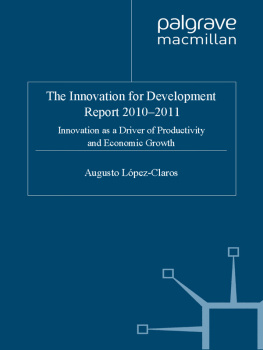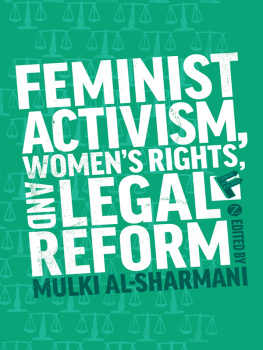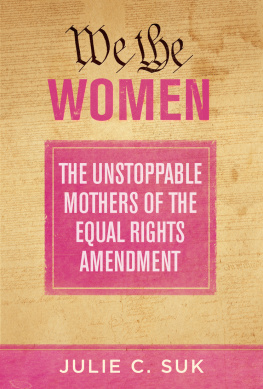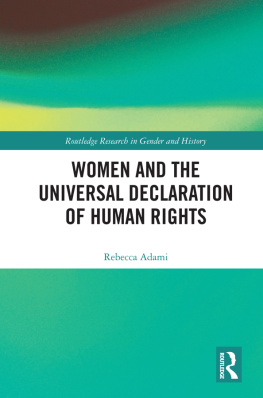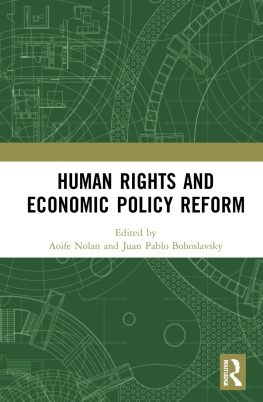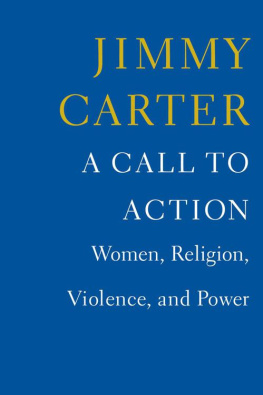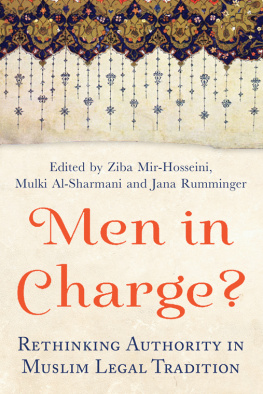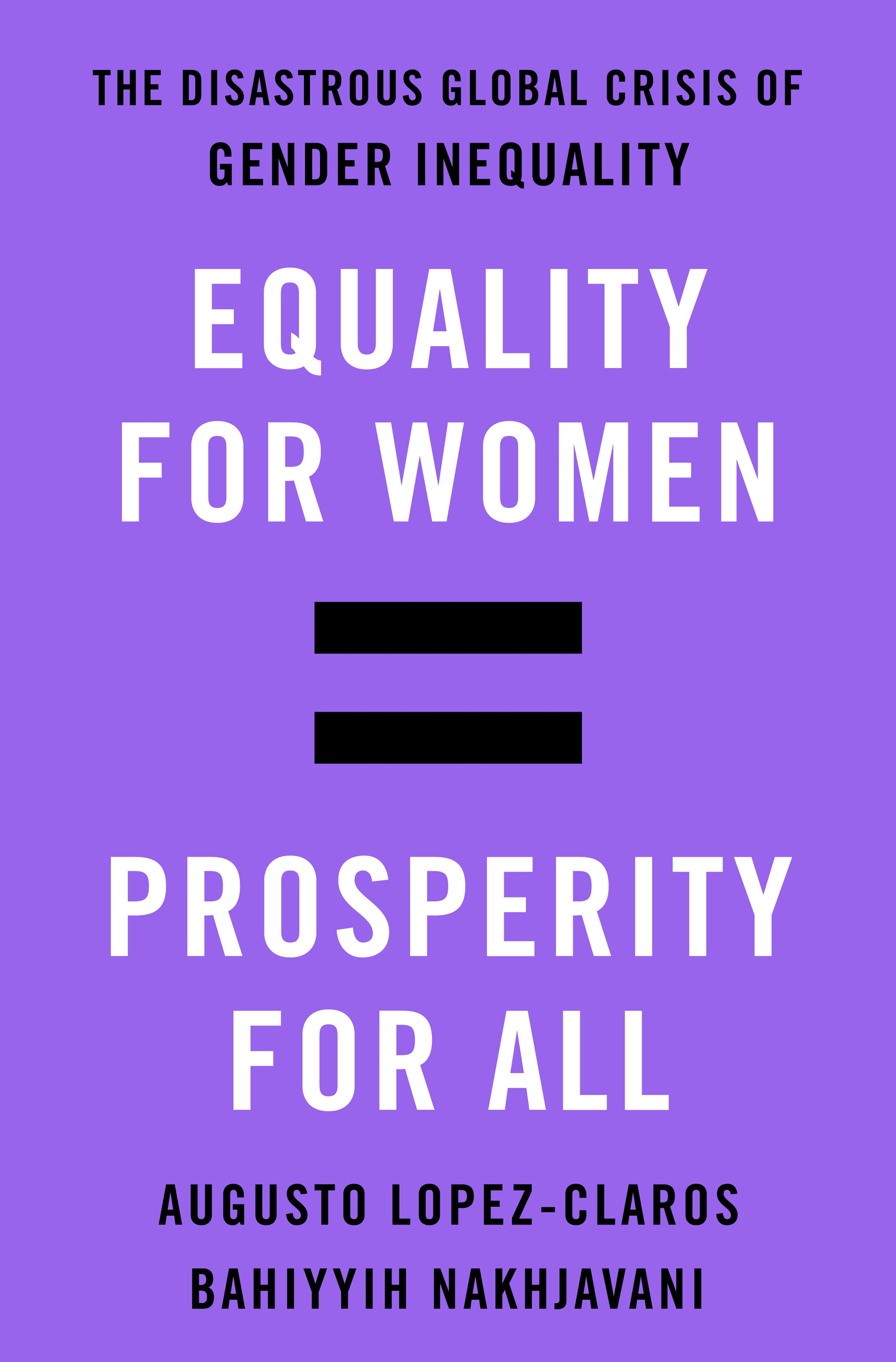Contents
Guide
Pagebreaks of the print version

The author and publisher have provided this e-book to you for your personal use only. You may not make this e-book publicly available in any way. Copyright infringement is against the law. If you believe the copy of this e-book you are reading infringes on the authors copyright, please notify the publisher at: us.macmillanusa.com/piracy.
THIS BOOK COULD NOT have been written without the support and the insights of a large number of friends and colleagues, all of whom were patient enough to provide us with their feedback and observations, which did much to improve the final manuscript. We would like to acknowledge one colleague in particular, whose contributions were crucial to the writing of this book. Sarah Iqbals research on the human rights dimension of gender equality was very much the starting point for the chapter Rights and Wrongs. She also generously provided us with important data and valuable insights for the chapter on violence against women. This is a relatively new area of focus for the Women, Business and the Law report, a project that actually provided the initial inspiration for this book; the WBL project has been ably managed by Sarah in recent years.
It would be difficult to name all but equally impossible not to mention some readers whose insights, commentary, and encouragement helped to shape this book. Among these are Laurie Adams, Noorjahan Akbar, Veronika Bard, Kaushik Basu, Julia Berger, Nancy Birdsall, Maud de Boer Buquicchio, Erica Bosio, Diana Chacon, Monica Das Gupta, Bani Dugal, Amanda Ellis, Saba Ghori, Ruth Halperin-Kaddari, Coby Jones, Yasmeen Hassan, Ernesto Hernandez-Cata, Asif Islam (who brought to our attention key pieces of data and relevant dimensions of the literature and was one of our most committed readers), Melissa Johns, Jackie Jones, Khrystyna Kushnir, Nora Lankes, Hans Peter Lankes, Jannie Lilja, Mirta Tapia de Lopez, Cristina Manzano, Katherine Marshall, Yasmina Mata, Bahia Mitchell, Elena Mustakova, Moiss Naim, Lindsay Northover, Valeria Perotti (who co-authored with one of us a paper on the role of culture in economic development which was the starting point for the chapter The Culture Question), Rita Ramalho (who contributed several key ideas and material to the chapter on women and work), Anna Reva, Eduardo Rodriguez Veltze, Pilar Salgado, Melanne Verveer, and Farbod Youssefi. We would like to express special appreciation to Laura Apperson, Marcia Markland, and Katherine Haigler at St. Martins Press who provided constant encouragement and generous editorial support. We are grateful to Debra Manette for her excellent copy editing, and Nancy Ackerman from AmadeaEditing provided expert additional editorial support. Any limitations and imperfections in the book, however, are our own.
The views expressed in this book are the authors own and do not necessarily reflect those of the organizations with which they are affiliated.
As long as women are prevented from attaining their highest possibilities, so long will men be unable to achieve the greatness which might be theirs.
' A BDU'L- B AH, P ARIS, 1912
THE RIDDLE OF THE SPHINX
The disparity between the sexes and their supposed equality has posed a riddle that has perplexed minds great and small, in one culture or another across the planet, since the beginning of time. We cannot quite resolve the conundrum. Men and women belong to the same species; we are all members of the human race. And yet we are clearly different. It is not merely skin deep, this difference; it is not just a disparity of race and color. It seems to be a fundamental difference of function, of biology, some would even say of neurology, psyche, possibly soul.
So how can we be equal? We have puzzled over this paradox for millennia.
At first glance there seems to be no solution to the enigma, no answer to the riddle. We stare at the sexless features of this weathered Sphinx and find no clue in its blank gaze, no key to the pitiless differences spawned by its enigmatic gender. Indeed, obsessive scrutiny only complicates matters, for the multiple disparities between men and women can blind our eyes, like sand. And so we have concluded over time that the only way to lay the problem to rest and resolve the riddle is by avoiding it altogether. We have drawn clear demarcations round our separate genders and defined who we are in strict relation to what we are not, just to reassure ourselves of our existence. In other words, we have preferred sex segregation to equality if only to control the threat posed by our differences.
A strict separation between the sexes, of social and political roles, of public and private space, has been one way of resolving the conundrum for many societies and cultures over the ages. It is like nationalism, racism, even religion. Countries can ignore each other and feel no economic or cultural threat, as long as they are miles apart; we can convince ourselves that East is East and West is West and never the twain shall meet, as long as there is no outsourcing of the labor force and no international competition over the market. Similarly we have imagined that sex segregation could lay the riddle of gender to rest. As long as men and women kept to their separate spheres, as long as their roles and responsibilities were strictly defined and rigidly regulated by gender-specific laws and customs, we could try to convince ourselves that the problem did not actually exist. The patriarchal order has resolved the dilemma by ignoring the conundrum, and keeping women in their place.
But the Sphinx is a subtle creature. Her riddles have a way of returning to haunt us.
When Sophocles wrote his tragedy Oedipus Rex in 429 BC, he conjured what it would be like to live in a city cursed by the Sphinx. The imaginary Thebes of classical antiquity was a place where a man could murder his father with impunity and marry his mother without a qualm. It was a place where a son, standing innocent at the crossroads of choice with his eyes wide open, could still be completely blind to his own and his parents true identity. And in this city, the wells were poisoned and people were dying because they could not solve the Sphinxs riddle.
Sophocles play dramatized the terrible price society would pay if sexual taboos were ignored, if paternity was not strictly controlled, and if women were not kept in their place. The answer to the riddle of what walks with four legs in the morning, two legs at noon, and three in the evening was man; it was also a warning against a world in which sisters could be daughters, in which women could rule over their murdered husbands and commit incest with their sons. Sophocles was, in effect, sounding the credo of the patriarchal order.
But perhaps the real curse of the Sphinx is our blindness to the fact that it contains multiple meanings. The curse of our times is no longer what poisoned our wells in the past. The riddle of our age can no longer be solved by the old answers. The plague that is poisoning our civilizations today, and undermining our cultures, is neither incest, nor the loss of paternal identity. It is the segregation of the sexes. We are living in a world today cursed by gender inequality.
No one has a monopoly on it either. The curse is everywhere: in the public as well as the private sphere, at the domestic as well as the international level. It controls our finances, our information technology, our laws in many a land. It exists in rich countries as well as poor, can characterize every race that calls itself human, and has manifest itself across virtually all cultural traditions. The whole planet, and not just Thebes, lies in its grip.


